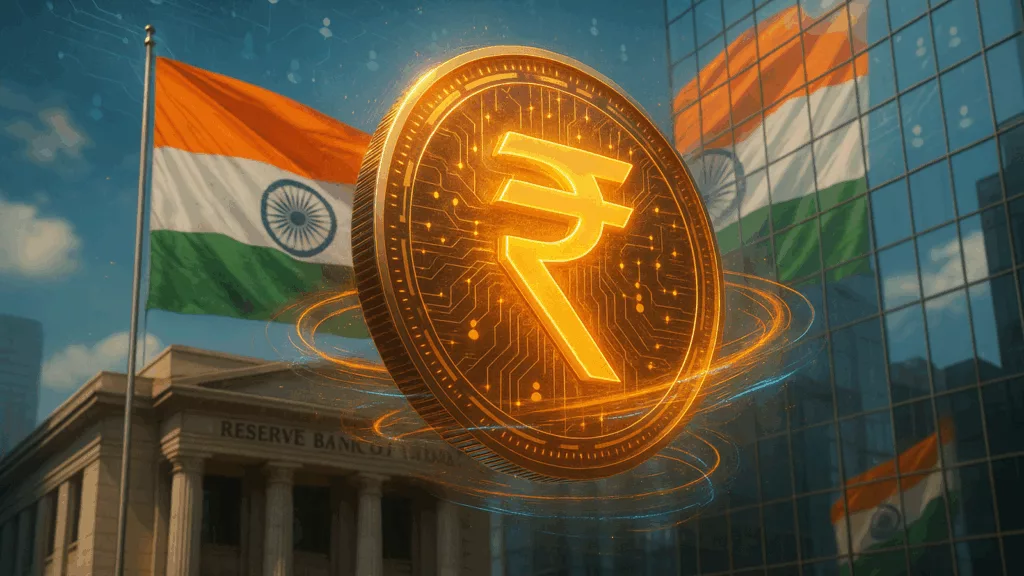- India’s Union Minister Piyush Goyal publicly confirmed India will roll out an RBI-guaranteed digital currency.
- Goyal reiterated that India does not encourage cryptocurrencies that lack sovereign or asset backing.
- India’s Central bank said that it will soon launch a pilot for deposit tokenisation with a few banks.
India’s Union Minister Piyush Goyal, on October 7t,h publicly revealed that India will soon launch the digital rupee (CBDC) backed by the Reserve Bank of India. Speaking in an interview to ANI, Goyal stated that it would be a ‘secure, traceable, and faster medium.’
“We will be coming out with a digital currency, which will be backed by a Reserve Bank of India guarantee … This will only make it easier to transact. It will also reduce paper consumption and will be faster to transact than the banking system. But it will also have traceability,” he said.
Goyal also reiterated that India does not encourage cryptocurrencies that lack sovereign or asset backing. But went on to say that they weren’t outrightly banned, but instead are heavily taxed to discourage risk.
“There is no ban as such, we are taxing it very heavily … we don’t encourage it because we don’t want anybody to be stuck at some point with a cryptocurrency that has no backing,” he said.
India’s Digital Rupee program
India’s CBDC program, commonly called the e-Rupee or digital rupee, has been in pilot since late 2022. The RBI has been testing both wholesale (CBDC-W) and retail (CBDC-R) versions. The retail version aims to let individuals and merchants use a digital rupee for payments (P2P, P2M), with features like offline capability and programmability being added to widen usability.
The wholesale version is intended for interbank settlement, reducing liquidity/collateral costs and enabling smoother settlement of large-value or securities transactions. In mid-2025, RBI said it would expand the retail pilot to include hundreds of thousands of users and non-bank entities offering CBDC wallets.
Pilot launch for deposit tokenization
In parallel, the Reserve Bank of India on Tuesday said that it would launch a pilot on deposit tokenisation soon. Digital tokenisation involves converting assets like deposits, stocks, and bonds into blockchain-based representations. This shift could streamline transactions by making them quicker, more cost-effective, and secure.
For this, RBI has said that it will use the wholesale version of its central bank digital currency (CBDC) as the foundation, according to Chief General Manager Suvendu Pati. Reuters reported that Pati was speaking at an event in Mumbai and noted that the RBI is collaborating with a handful of banks on the initiative.













